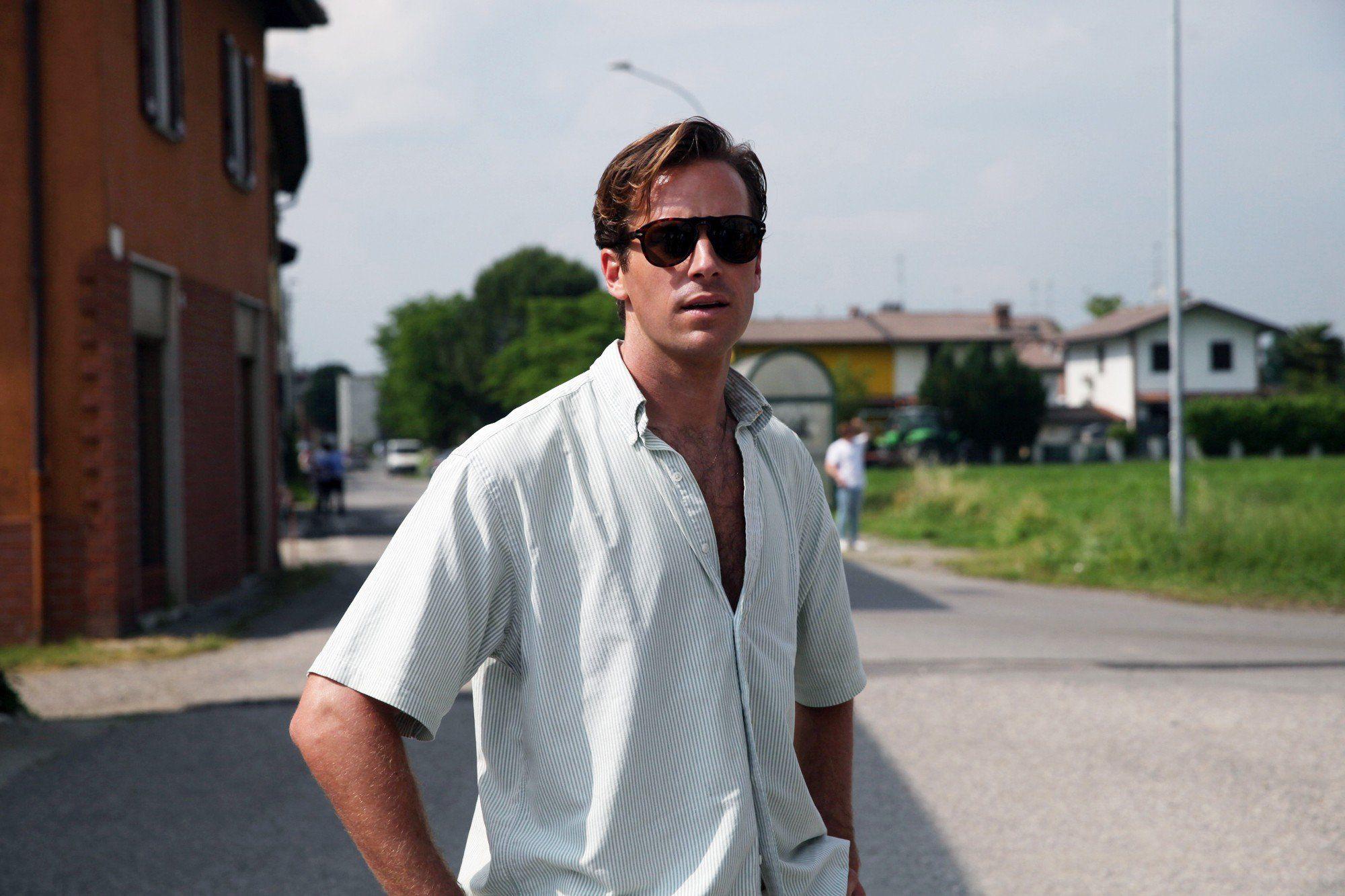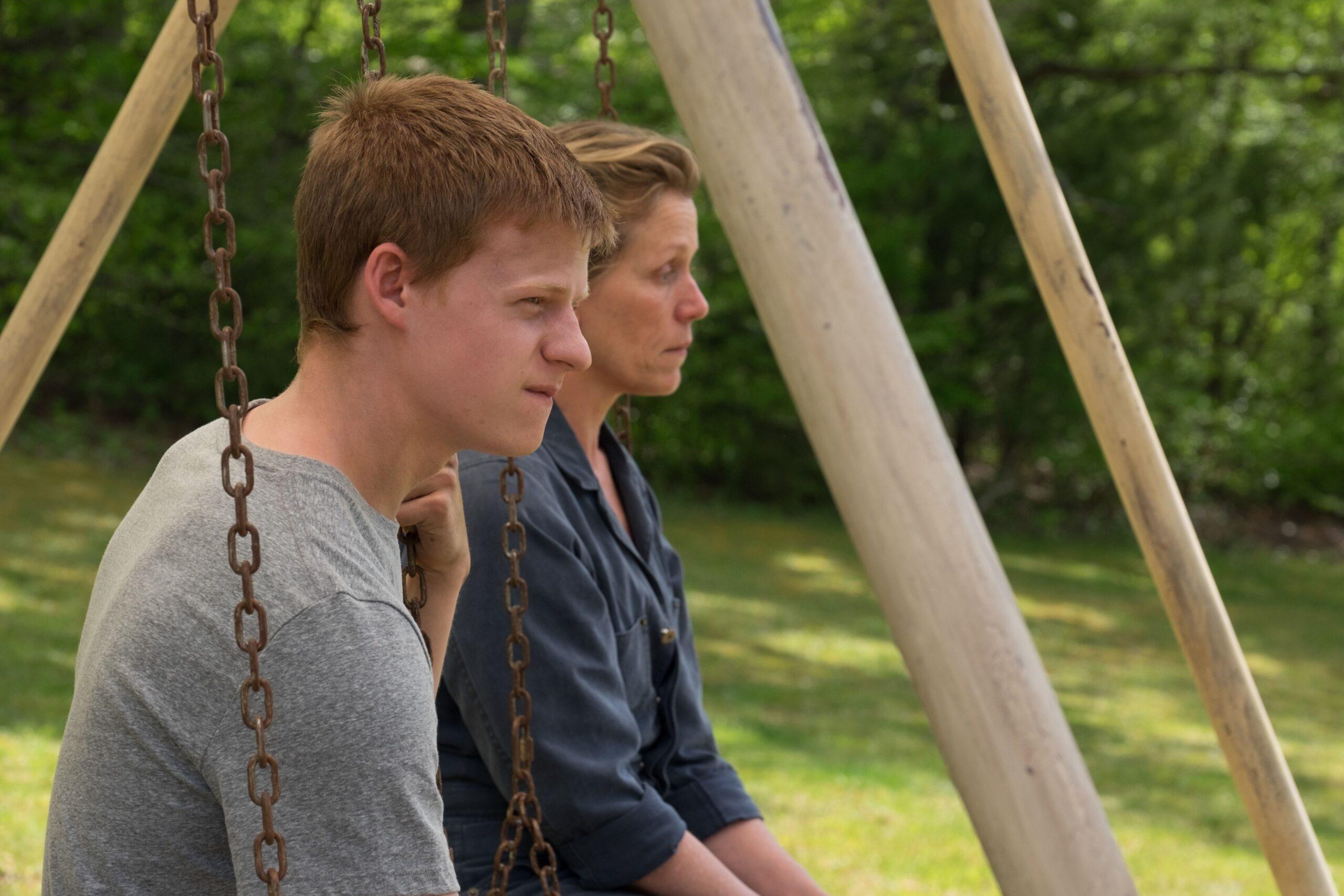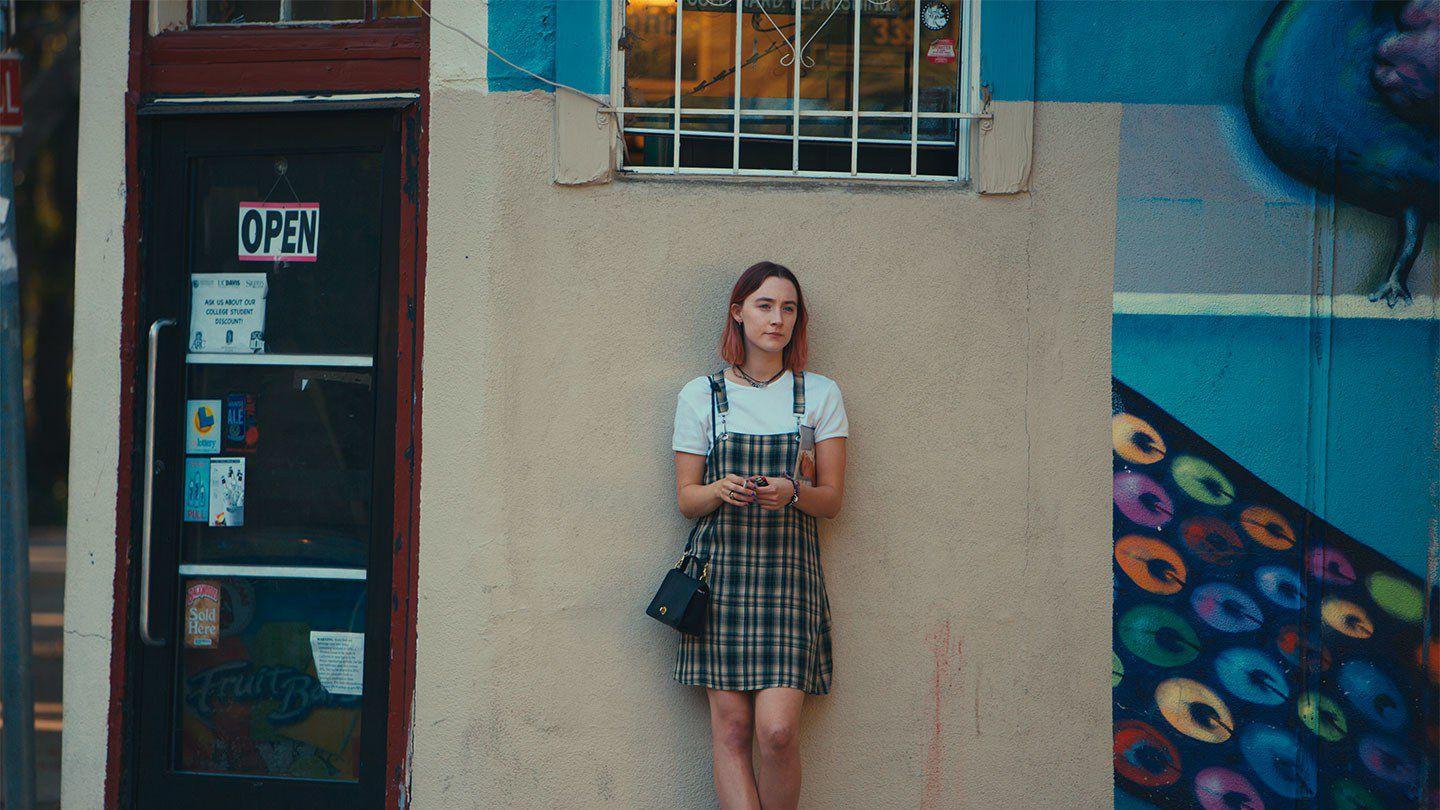On January 19, at long last, the patient cinephiles of flyover country finally got to experience The Peach. Breathless tales of Call Me by Your Name, Luca Guadagnino’s sumptuous tale of a tentative gay romance in early-’80s northern Italy, had plagued us on the internet for a solid year, ever since the movie’s rapturous premiere the previous January at Sundance 2017. Wildly charismatic stars Armie Hammer and Timothée Chalamet each commanded their own hives, which buzzed incessantly on Twitter all summer; meme-ready footage of Hammer’s dance moves haunted us well into the fall. In November, the film opened in limited release—a handful of theaters in New York City and L.A., basically—and was hailed as “a small miracle,” “a masterpiece,” “one of the great movie love stories,” and “a swooning new classic.”
But in most of the country, including my humble home of Columbus, Ohio, we still had two months left to wait for the majesty, the yearning, the exquisite melancholy. And also, The Peach. There’s a thing with a peach, we were incessantly informed. It’s shocking, it’s gross, it’s bizarrely erotic, it’s unforgettable. Oh, man. Just you wait.
So we waited. Nowadays, with most major film events, either the whole country waits together (see multiplex-demolishing sensations like Black Panther) or nobody has to wait at all (see Netflix’s Super Bowl Sunday stunt release of The Cloverfield Paradox). But the boldest, wildest, most critically acclaimed movies of the year—the Oscar bait—still tend to cluster in November and December, and still tend to give New York and L.A. at least a three-week head start.
This creates the delayed-reaction alternate universe that is Midwest Oscar Season. Lady Bird opened in limited release November 3 and went wide November 24, setting the pattern for many of this year’s juiciest awards bait, including Three Billboards Outside Ebbing, Missouri (November 10 limited, December 1 wide); The Shape of Water (December 1 limited, December 22 wide); I, Tonya (December 8 limited, January 19 wide); and Phantom Thread (December 25 limited, January 19 wide). This is a mildly frustrating phenomenon that Brad Keefe, longtime film critic for my local alt-weekly Columbus Alive, summarizes as, “‘This is one of the best films of the year. You can see it in a month.’”
That might not seem so terrible, but on the internet, a month might as well be a year, and in the case of a film-festival sensation like Call Me by Your Name, a year might as well be a lifetime. For the most engaged moviegoers—who monitor festivals, and big-city critics, and Film Twitter—you can find yourself totally sick of hearing about movies you’ve as yet had no chance of seeing. “Armie Hammer Season Is Over,” announced a headline on my own website, literally four days after the movie opened in Columbus. (He’d missed out on an Oscar nomination and was publicly grieving via tracksuit.)

“It’s a different experience to be able to see something before there are a lot of words out in the universe—think pieces, and hot takes, and tweets, and whatever else—than it is to see something when you’ve been kind of buried under weeks or months of that,” says Mark Pfeiffer, president of the Columbus Film Critics Association. “So I can completely understand the average filmgoer being frustrated that they aren’t getting access to something when it’s already gone through the initial reception, initial backlash, then maybe initial backlash-to-the-backlash.”
This is a maddening state of affairs for culture obsessives, an issue that goes beyond mere plot spoilers into a sort of prestige FOMO: You’ll get to see the movie eventually, but you’ll miss most of the conversation. Why does this still happen, in the age of instant gratification? And is Call Me by Your Name, in some fundamental way, a different movie in 2018 Ohio than it was at Sundance 2017? Does all that noise and anticipation alter the viewing experience in some unavoidable way? Netflix has driven the prestige-TV era toward perilous new heights of geographical rootlessness and rampant binge-watching, and is now threatening to do the same to movies. Which makes Oscar films even more of an exception now, a precious cultural commodity where your address still matters, and the theoretical best of the best is theoretically worth waiting for. Does all that agonized buildup ripen The Peach to perfection, or simply spoil it?
“The Oscar season has always been kind of weird,” says Forbes film critic and reporter Scott Mendelson. “As a kid growing up in Akron, Ohio, I had to wait till February to see Rushmore.” (It opened in limited release in December 1998.)
The idea of “platform releasing”—opening a film usually just in New York and L.A., then strategically hitting other markets over multiple weeks as buzz builds, instead of a blockbuster everywhere-at-once “wide release”—long predates the internet. Consequently, it used to make much more sense. Actual physical reels have mostly given way to hard drives, greatly simplifying the logistical challenges of distribution. And living in the middle of the country in the early 2000s, back in the halcyon days of the pre-Facebook internet, it was far more likely you’d only hear about—or at least only care about—an Oscar darling when it hit town.
But even in an age of digital distribution and Total Internet Saturation, platforming persists, and still makes industry sense, because getting people to care is now as challenging as ever. “As much as we in big cities think that there is awareness of these films, there’s really not until there’s a decent marketing spend behind them,” says Matthew Belloni, editorial director for The Hollywood Reporter. “And for these awards movies, they utilize these shows as the marketing for the movies. If you’re Call Me by Your Name, you’re not gonna spend $10 million on a marketing campaign in the Midwest. You’re gonna let the Golden Globes do that. You’re gonna let the SAG Awards do that. And all these other things. And then by the time you open the movie in Columbus, people have heard of it, because they’ve seen the stars on these other shows. They’ve seen the press attention. And then you hit the market with the TV ads that recount all this.”
Mendelson notes that this approach inadvertently causes the Oscar nomination process to often alienate most of the country. “I think that’s where some frustration comes in, deservedly or not, when films like Wonder Woman or, I wasn’t a huge fan of it, but Blade Runner 2049, these more mainstream pictures, get pushed aside for these year-end Oscar movies,” he says. “So they’re not really celebrating the year in film; they’re celebrating a handful of very specifically targeted movies that were released almost for the sole purpose of winning awards.” Given the Academy’s ongoing prestige vs. populism debate, it is notable that the alleged best movies of any given year often aren’t even released in most of America until the following year.
An even more upsetting prospect is that plenty of culture-savvy Americans no longer care about such Oscar disparities at all. The caution driving a platform-release strategy is partly a function of theaters losing ground to home theaters, and prestige film losing ground to prestige TV. “If you’re somebody that has access to 1080p downloads or Blu-rays or even DVDs,” Mendelson says, “there’s not that much of a difference anymore between watching a film in a suburban theater in Columbus, Ohio, versus renting that movie 100 days later for a nominal fee. It’s not that, Ohhhh, moviegoers are too stupid to see this movie in theaters. It’s that they can watch The Handmaid’s Tale on Hulu! From home!”

Given all this multimedia competition, a slow, tentative rollout is thus a necessity for a less bombastic film like Lady Bird or Phantom Thread. “If you look at these awards movies this year, the platform strategy seems to be working,” Belloni says. “Because movies like Darkest Hour, The Shape of Water, and Three Billboards Outside Ebbing, Missouri—they’re doing well. The one movie, oddly, that isn’t, is Call Me by Your Name. And I’m not sure that’s because of the platform release.”
Indeed, Call Me by Your Name’s distributor, Sony Pictures Classics, has taken some criticism on social media for not opening in more cities sooner. But this backlash has triggered its own backlash-to-the-backlash, including a detailed defense by Tom Brueggemann in IndieWire arguing that the movie had to pick its platform-release dates carefully, given all the other Oscar contenders were launching their nationwide campaigns in November and December: “SPC offered the freshest specialized title in many of the best theaters at a time with far less studio competition.” (Through a publicist, Sony Pictures Classics declined interview requests.)
Nor was immediately opening nationwide ever a realistic option for a film this specialized. “If they had gone wide with that movie, it would’ve died,” Belloni says. “It would’ve totally died. It would’ve earned, like, less than $10 million opening weekend, and it would’ve been out of theaters in two weeks. That’s what theaters do. Theater owners take movies away from theaters if they’re not performing. If you go wide with a movie like Call Me by Your Name, the audience just isn’t gonna be there. So it’s gonna leave theaters. And once you lose those theaters, you really can’t get them back.”
Even in a mid-sized city like Columbus, there are only so many theaters, especially if you’re looking for something that isn’t a superhero movie. “We have only three screens,” says Kevin Rouch, director at the Drexel, a beautiful, 80-year-old independent theater that specializes in prestige and international film. “So we have to play a little bit of Tetris with those screens.” Oscar contenders aren’t contending with superhero movies these days so much as they’re contending with each other.
The way Mendelson summarizes the state of box-office affairs in 2018 is very simple: “It’s not 1996 anymore. Movies played for longer. More people bought tickets. And because people went to the movies just to go to the movies, certain films, like Mother!, might not have lived and died on opening weekend.”
Also, thanks to the internet, hype cycles are much louder in the 21st century, but they’re also shorter. And now more than ever, “awards season” is its own particular beast that most often requires an Oscar-chasing movie to launch at a very particular time. Read the right websites, and Call Me by Your Name chatter might’ve overwhelmed you long before the actual film came to your town. But that’s largely a mirage, and not a lingering one.
“Isn’t that just the nature of the internet?” Belloni asks. “I don’t know how you get around that. Maybe the argument can be made that you would’ve rather had the opportunity to see the movie back when the memes were fresh. But I don’t know if that’s a justification for spending $20 million on a wide release.” Armie Hammer’s dance moves, transcendent as they might be, are worth only so much.
Meanwhile, devoted theatergoing audiences in places like Columbus have learned to live with the Oscar darlings getting to town a little later. “We’ll get inquiries early, like, ‘Are you opening it this weekend, when it comes out in New York and L.A.?’” the Drexel’s Rouch says. “So there’s more of that, like, asking about it. But unless they want to travel to Chicago or fly to New York or something, I don’t know that it affects the bottom line all that much. I don’t get a lot of blowback on that stuff—‘Why aren’t you getting it sooner?’ I don’t get a lot of those comments. We may have to explain the way that it works, the way things are distributed, but once we do that, audiences are pretty patient.”
This holds true even for a newer theater like the eight-screen Gateway Film Center, which sits on the edge of Ohio State’s campus, whose current students have practically never known a world where they can’t watch whatever they want to watch, whenever they want. “I think your point is valid—we live in sort of an on-demand culture,” says the Gateway’s president, Chris Hamel. “But my experience, and what I’ve heard from our audience, is just general excitement when these films do get here. You know, even if Lady Bird takes two or three extra weeks to make it to Columbus from New York, it’s a pretty excited audience when these films make it to us.”
As for Call Me by Your Name specifically, all the advance chatter just led to heightened excitement, not jaded burnout. “I know there was a lot of conversation on Twitter about that film, and a lot of back and forth between Armie Hammer and James Woods,” Hamel says. “I think by the time it got here, audiences were just really excited to see it.”
Given the finite nature of both marketing budgets and available theater screens, the only long-term solution for delays is for those movies to open everywhere, simultaneously, on streaming services or video on demand. That’s Netflix’s plan, certainly. But thus far the company’s had better luck with trashier fare like The Cloverfield Paradox than with tougher sells like 2017 Sundance luminary I Don’t Feel at Home in This World Anymore, a Netflix exclusive that, as Pfeiffer points out, is hard to find on the site if you’re not explicitly looking for it. Amazon has found greater success in the awards-show arena, though crucially, success stories like Manchester by the Sea got a theatrical release first. The Big Sick, this year’s biggest Amazon-backed Oscar contender, scored only a Best Original Screenplay nomination, but it has also made more than $42 million at the box office to date.
Mudbound, a Netflix exclusive that earned four Oscar nominations (including a Best Supporting Actress nod for Mary J. Blige), is a step in the right direction. But only a step. “Netflix has been unable to get a Best Picture nomination so far,” Belloni says. “And until they get a Best Picture nomination, filmmakers, in my opinion, will prefer to have their big awards movies go through a theatrical distributor. Because that’s the goal. You want to win an Oscar, and you want the most people possible to see the movie. Netflix can bring you the audience. But at least so far, they can’t win you Best Picture.”

As part of the very large and mildly perturbed American film audience outside New York and L.A., I now regard my tolerance of platform releasing as a noble sacrifice I make to selflessly preserve the theatrical experience for everyone, everywhere. (You’re welcome.) Netflix’s long-term “every movie available everywhere at once” model hypothetically solves all my problems, but also creates this one: Watching The Big Sick or Lady Bird as part of a big crowd can be just as rewarding and enhancing an experience as taking in a sold-out showing of Black Panther. And the very notion of watching Phantom Thread for the first time on a laptop strikes me as a betrayal, as sacrilege, as missing the point entirely.
“Had you seen a film like Call Me By Your Name, you’d desperately want to talk to someone else about it immediately upon seeing it,” Hamel says. “You want to see it in a peer experience. And no matter how fast the movies are available at home, there is no competition with a dark room with a bright screen and great sound and a bunch of people who care about the film the same way you do.”
From a critic’s perspective, even if you’re irritated that you couldn’t even get a Phantom Thread screener before year-end lists were due, an engaged crowd is just as essential. “One of the things you have to do as a critic, particularly with these home-viewing screeners we get, is sometimes I’ve had to apply an imaginary audience in my head as part of that experience,” Columbus Alive’s Keefe says.
And so there I sat, at a Columbus multiplex screening of Call Me by Your Name on a recent sleepy weekday afternoon, watching rapt, along with maybe a dozen other people, as The Peach finally appeared. It was exactly as transcendent as I’d expected, and way grosser. And as one does in a movie theater during such an awkward onscreen moment, I tried to attune myself to the people sitting around me, listening for a few subtle but sharp intakes of breath. Whether these were delightfully unprepared Holy shit gasps, or savvier and jaded Finally gasps, I couldn’t say. But happily, right in that moment, there wasn’t much difference.
